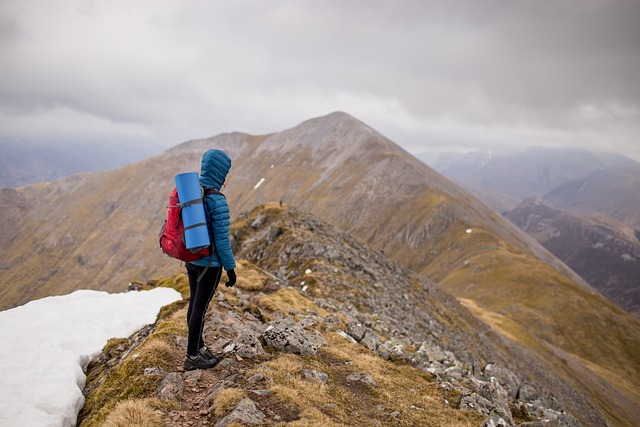Welcome to my guide on hiking tips for seniors! In this article, I’ll explore how you can embrace the beauty of nature, enjoy the great outdoors, and make the most of your hiking adventures, regardless of age. Hiking is a wonderful activity that offers numerous physical and mental health benefits, and I want to help you overcome any concerns or limitations you may have.
Whether you’re a seasoned hiker or new to the trails, I’ll provide you with practical advice and tips to ensure a safe and enjoyable hiking experience. So, lace up your hiking boots, grab your walking stick, and let’s dive into the world of hiking for seniors.
Preparing for the Hike
Before hitting the trails, it’s important to make some preparations to ensure a smooth and enjoyable hiking experience. Let’s look at some key steps to take before embarking on your hiking adventure.
1. Consultation with Healthcare Provider:
- It’s always a good idea to consult with your healthcare provider before starting any new physical activity, including hiking. They can provide valuable insights into your overall health and any specific concerns or limitations you should be aware of.
- Share your interest in hiking and discuss any pre-existing conditions, such as joint problems or cardiovascular issues. Your healthcare provider can give you the green light and provide any necessary precautions or recommendations.
2. Choosing the Right Trail:
- When selecting a hiking trail, consider the difficulty level and distance. Start with trails that are suitable for your fitness level and gradually increase the challenge as you gain more experience.
- Look for senior-friendly trails that have gentle slopes, well-maintained paths, and minimal obstacles. These trails are often marked with signs indicating their difficulty level, so choose accordingly.
3. Packing Essentials:
- Proper footwear is essential for stability and comfort on the trail. Invest in a sturdy pair of hiking boots or shoes that provide good ankle support and have a reliable grip.
- Dress in lightweight and breathable layers to accommodate changes in temperature throughout the hike. Opt for moisture-wicking fabrics to keep you dry and comfortable.
- Don’t forget to pack essential items such as a water bottle to stay hydrated, energy-rich snacks to keep you fueled, sunscreen to protect your skin, a hat for sun protection, insect repellent, a small first aid kit, and a trail map or compass.
Remember, proper planning sets the foundation for an enjoyable hiking experience.
Physical Conditioning and Safety
Ensuring your physical well-being and taking safety precautions are vital aspects of hiking, especially for seniors. Let’s explore some key considerations to help you stay fit, prevent injuries, and have a safe hiking experience.
Strength and Endurance Training:
- Regular exercises can help improve your fitness level, strengthen your muscles, and enhance your endurance. Focus on exercises that target your legs and core, as these are the primary muscle groups used during hiking.
- Incorporate activities like walking, swimming, cycling, or light weightlifting into your routine. Even simple exercises like squats, lunges, and step-ups can make a difference in building strength and stamina.
Warm-Up and Stretching:
- Before starting your hike, warm up your muscles with a few minutes of light cardio activity like brisk walking or marching in place. This helps increase blood flow and prepares your body for the physical exertion ahead.
- Perform gentle stretching exercises to improve flexibility and reduce the risk of muscle strains or injuries. Focus on stretching your calves, quadriceps, hamstrings, and hip flexors.
Safety Precautions:
- Always inform someone about your hiking plans, including the trail you’ll be on and your estimated return time. It’s a good idea to hike with a partner or in a group, but if you choose to hike alone, make sure someone knows your whereabouts.
- Carry a fully charged cell phone with you in case of emergencies. Save important contact numbers, including local emergency services and park authorities, in your phone.
- Familiarize yourself with basic first-aid techniques and carry a small first-aid kit that includes items like band-aids, blister pads, antiseptic wipes, and pain relievers.
Safety should be your top priority when hiking. Taking the time to condition your body and following safety guidelines will help you enjoy your hike to the fullest while minimizing any potential risks.
Check my complete guide on hiking training for seniors.
On the Trail
Once you’re on the trail, it’s time to immerse yourself in the beauty of nature and enjoy your hiking experience. Here are 3 tips to help you make the most of your time on the trail while ensuring your safety and comfort.
1. Pace Yourself:
- Start with shorter and easier hikes, gradually increasing the distance and difficulty level as you gain confidence and endurance. Listen to your body and take breaks whenever you need to rest.
- Use the “talk test” to gauge your intensity level. If you can comfortably hold a conversation while hiking, you’re maintaining a good pace. If you’re breathless and unable to speak, slow down and take it easier.
2. Proper Walking Techniques:
- Maintain an upright posture while walking to optimize balance and reduce strain on your joints. Engage your core muscles to support your spine.
- Consider using trekking poles to provide added stability and reduce stress on your knees. They can also help distribute your weight more evenly, making hiking easier on your body.
3. Mindful Footwork:
- Pay attention to the trail and watch your step, especially on uneven terrain. Take your time and choose your footing carefully to prevent slips or trips.
- Be cautious on slippery surfaces, such as wet rocks or muddy paths. Look for alternative routes or use hiking poles for better traction.
Hiking is not a race. Take the time to appreciate the natural surroundings, breathe in the fresh air, and listen to the sounds of nature. Enjoy the journey as much as the destination, and don’t hesitate to stop and admire the breathtaking views along the way.
Enjoying the Hike to the Fullest
Hiking isn’t just about reaching the end of the trail; it’s about immersing yourself in nature, connecting with the environment, and creating lasting memories. Here are some ways to enhance your hiking experience and make the most of every moment.
Engaging the Senses:
- Observe and appreciate the natural surroundings. Take in the vibrant colors of the flowers, the rustling of leaves in the wind, and the scent of the forest.
- Listen to the sounds of nature – the chirping of birds, the gushing of a nearby stream, or the gentle rustle of wildlife. Let these sounds soothe your soul and create a sense of tranquility.
Exploring the Wilderness:
- Expand your knowledge by learning about the local flora and fauna. Bring along a field guide or use a nature app on your smartphone to identify different plants, trees, and animal species you encounter.
- Take advantage of guided nature walks or birdwatching opportunities if available. Expert guides can provide valuable insights and make your hike even more educational and enjoyable.
Capturing the Memories:
- Bring a camera or smartphone to capture the beauty of your surroundings. Take photographs of scenic vistas, unique rock formations, or interesting wildlife you come across.
- Consider keeping a journal or scrapbook of your hiking experiences. Write down your thoughts, feelings, and memorable moments. Collect souvenirs like pressed flowers or leaves to add a personal touch to your journal.
Hiking is not just a physical activity; it’s an opportunity to rejuvenate your mind and nourish your soul. Take the time to immerse yourself fully in the experience, allowing nature to inspire and energize you. Embrace the serenity, the awe-inspiring views, and the sense of accomplishment as you conquer each trail.
After the Hike
Congratulations on completing your hiking adventure! Now that you’ve conquered the trails, it’s important to take care of your body and allow for proper recovery. Here are some post-hike tips to help you wind down and reflect on your accomplishments.
Proper Post-Hike Care:
- Cool down your body by doing some light stretching exercises. This will help prevent muscle stiffness and promote flexibility.
- If you’re experiencing any soreness or discomfort, consider applying ice or taking a warm bath to soothe your muscles. Gentle self-massage can also help alleviate tension and promote relaxation.
Reflection and Rest:
- Take a moment to reflect on your hiking experience. Appreciate the challenges you overcame and the beautiful sights you witnessed along the way. Acknowledge your achievements and feel proud of what you accomplished.
- Allow yourself ample time to rest and recover. Your body may need a day or two to rejuvenate after a demanding hike. Listen to your body’s cues and provide it with the rest it needs.
During this recovery period, you can reminisce about your hike by looking through the photos you took or writing in your journal. Share your experience with loved ones, reliving the excitement and joy you felt while exploring the great outdoors.
Conclusion
You’ve reached the end of this guide on hiking tips for seniors. I hope this article has provided you with valuable insights and practical advice to help you make the most of your hiking adventures.
Remember, hiking is not just about physical activity; it’s a chance to connect with nature, rejuvenate your mind, and create cherished memories. By following the tips in this guide, such as preparing for the hike, focusing on physical conditioning and safety, enjoying the trail, and taking care of yourself afterward, you can ensure a safe, enjoyable, and fulfilling hiking experience.
Age should never hold you back from embracing the beauty of the great outdoors. So, grab your hiking gear, gather your friends or loved ones, and embark on new adventures. Lace up your boots, breathe in the fresh air, and let the wonders of nature captivate your senses.
Stay active, stay adventurous, and keep exploring at any age! Remember, the trails are waiting for you, ready to reveal their hidden treasures. So go out there, embrace the beauty of nature, and create memories that will last a lifetime.










